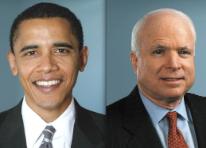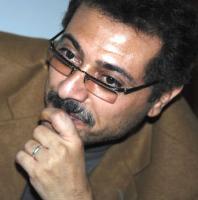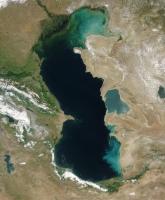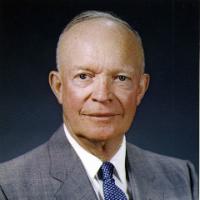The U.S. democracy-promotion agenda has been both too grandly conceived and ill-executed. When it comes to means, an over-reliance on military power, as was seen in Iraq, isn’t the only problem. Gaza is evidence that even diplomatic measures aimed at democracy promotion can go disastrously wrong, especially if elections alone are made the benchmark for measuring democratic progress. And public diplomacy and other soft power measures also come with their own difficulties. As such, although I’m definitely an advocate of so-called “smart power,” I’ve argued occasionally that means aren’t everything. In other words, although perhaps necessary, it’s not sufficient to […]
Middle East & North Africa Archive
Free Newsletter
Returning from their brief holiday hiatus, foreign policy committees on the Hill fielded testimony last week about U.S.-Chinese cooperation in Africa and Iran’s latest strategic aspirations in the Middle East. The Senate Foreign Relations Committee’s Subcommittee on African affairs began the week with a discussion of China’s involvement in Africa, and ultimately, its implications for U.S. foreign policy. James Swan and Tom Christensen, the deputy assistant secretaries of state for African affairs and East Asian and Pacific affairs, respectively, opened the hearing with a rather optimistic assessment of China’s African interests: In general, we see China’s growing activity on the […]
Interesting reading over at Abu Aardvark, aka Marc Lynch. A group of Sunni Awakening leaders visiting Washington offer their point of view on what future for progress in Iraq will require. Significantly, they emphasize the need to get the provincial and national elections right, something David Ucko argued here in WPR just a few weeks ago.
Thursday’s WPR Media Roundup featured several commentary pieces that highlight two closely related issues whose importance for the future of the Middle East can not be overestimated: the current Turkish-mediated talks between Israel and Syria (and the question of a potential U.S.-involvement), and how to deal with Iran’s nuclear ambitions and its drive to become the region’s dominant power. Indirect talks between Israel and Syria have been going on for a while, and both parties have good reason to be interested in such talks: Syria is shunned both by the West and by the Sunni Arab world due to its […]

This year, American children born after the fall of the Berlin Wall, literally a generation ago, will vote in a presidential election for the first time. They will join a group of voters born and raised during the long struggle against communism and now entering retirement. On Feb. 12 of this year, the nation’s first baby boomer — born on January 1, 1946 — collected her first social security check. In 2008, the long shadow cast by the Cold War will finally start to recede. Both baby boomers and so-called “millennials” seek a president that can address the most obvious […]

The situation grows more perilous by the day in the small nation of Yemen, on the tip of the Arabian Peninsula. Every day come new reports of mosque bombings, attacks on Western embassies, regrouping of terrorist organizations, and rebel advances towards the capital, Sana. In the face of such threats, the government has toughened its stance — against journalists. Yemen has been freeing convicted terrorists, while imprisoning journalists. The most troubling case involves the respected Yemeni journalist Abdulkarim al-Khaiwani, an outspoken advocate of democracy and press freedom, who faces a possible death sentence when he returns to court on June […]
Sam Roggeveen at The Interpeter (another new addition to the blogroll) makes some good points about Iran’s nuclear weaponization program. (Although the only time there was a “D” in Grunstein was back when I was playing pickup ball in NY. No harm, no foul, Sam.) As Sam rightly notes, as important as Iran’s intentions (which we can neither prove nor disprove, and which are subject to change) is the fact that any possible weapons capacity is significantly delayed by freezing the weaponization component of their program. That’s what’s known as a window of opportunity, no matter how slight the opening, […]
There’s a growing meme that between battlefield defeats in Iraq, internal divisions and souring public opinion, al-Qaida is a hobbled enemy. While I don’t agree with all of his answers, I think that Walid Phares is asking some very important questions about just how to measure victory or defeat over al-Qaida. Essentially, Phares argues that all of the current progress is contingent on keeping a firm military bootprint on the regional pressure points that, if loosened, would allow al-Qaida to regroup, whether under its Bin Ladenist current or some other ideological replacement: As simple as that: if the United States […]

The recent improvement in relations between Azerbaijan and Turkmenistan could help remove a major obstacle to the exploitation of Caspian Sea energy reserves. When Gurbanguly Berdymukhammedov arrived in Baku on May 19, he became the first Turkmen president in over a decade to visit Azerbaijan. The two countries severed ties in 1999 over an Azerbaijani decision to develop an oil and natural gas field that the Turkmenistan government also claimed. Until now, the unresolved dispute among the five Caspian states over how best to divide and manage the sea and its valuable subsurface natural resources has impeded efforts to exploit […]
Adam Blickstein is right in arguing that restoring the intelligence community’s credibility will be essential to the ability of any future presidential administration to mobilize public opinion for a necessary intervention. Whether or not that’s possible in an age of “all info ops, all the time” remains to be seen. There will always be both known and unknown gaps in our intelligence, and how they are used to drive policy is often an essentially political decision. Jeffrey Lewis, in a post I flagged yesterday, called attention to the different ways in which the Clinton and Bush administrations assessed a known […]
We often hear about the importance of the training component of counterinsurgency. Theoretically, the military endgame in Iraq and Afghanistan is not to defeat the insurgents so much as to empower the Iraqi and Afghan security forces to defeat the insurgents. The recent fighting in Basra but especially in Sadr City illustrates, among other things, both the importance of Iraqi units doing the fighting, as well as their limitations in doing so. Nevertheless the Army still doesn’t have a coordinated training program or doctrinal approach to military advisors. It’s a subject that’s getting more attention these days, and Kip over […]

Sen. Barack Obama’s promise to “immediately begin to remove our troops from Iraq” is the centerpiece of his campaign, and his straightforward stance on the war and vision of an endgame is the factor that arguably attracts most of his supporters. “When I am commander-in-chief,” he vows, without a hint of hedging or nuance, “I will set a new goal on Day One: I will end this war.” The U.S. has witnessed similar moments in presidential politics. In 1952, with the nation bogged down in a bloody and unpopular war on the Korean peninsula, Gen. Dwight Eisenhower campaigned on a […]
However stable or illusory it turns out to be, the improved security situation in Iraq has made calling for the withdrawal of American troops into an act of courage these days. I’m increasingly of the opinion that if ever there was a moment to wait and see how things develop, now would be it. But Monica Duffy Toft, in a CSM op ed, reminds us that there are longterm strategic costs for shortsighted optimism. Essentially, as this line of reasoning goes, all of the blood and treasure we’re investing in stabilizing Iraq is going to pay huge dividends down the […]
For some reason, this paragraph from Hussein Agha and Robert Malley’s NYT oped jumped out at me: The United States has cut itself off from the region on the dubious assumption that it can somehow maximize pressure on its foes by withholding contact, choosing to flaunt its might in the most primitive and costly of ways. It has pushed its local allies toward civil wars — arming Fatah against Hamas; financing some Lebanese forces against Hezbollah — they could not and did not win. And it has failed to understand that its partners could achieve more in alliance than in […]

A CHANGING WORLD — The Trilateral Commission is made up of top leaders in politics, foreign policy, and finance from the United States, Western Europe, and Japan — hence the “tri” in the name. The group has a reputation for secretiveness and behind-the-scenes power in shaping world affairs. Formed during the Cold War, it is traditionally Western in outlook, influential rather than powerful, and discreet more than secretive. The Trilateral Commission emerged into the limelight when president elect Jimmy Carter, himself a member, lifted his foreign policy team wholesale from its ranks, including the former director Zbigniew Brzezinski. Corridors has […]
According to this Le Figaro account of Bernard Kouchner’s surprise weekend visit to Iraq, Iraqi President Jalal Talabani has begun referring to the current economic, political and security conditions as a “Baghdad spring.” There’s still some background signal noise, as well as both uncertain and contradictory data points, but as Andrew Sullivan rightly points out here, conditions on the ground have changed the political calculus in Washington. Kouchner’s visit and Le Monde’s claim that France will use its EU presidency to push for increased European involvement in Iraq suggest a line that should begin to get more attention, namely the […]
